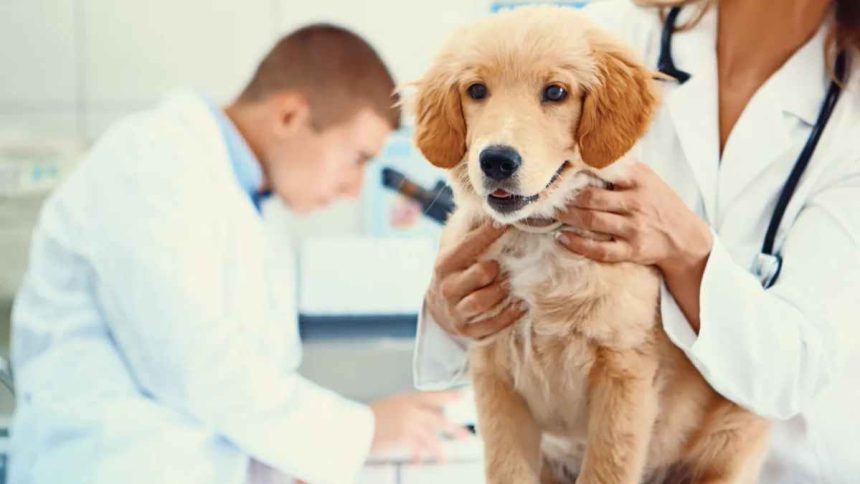As a dog owner, it’s important to understand the key aspects of dog health to ensure that your furry friend is living their happiest and healthiest life. In this article, we’ll explore the important areas of dog health, including regular checkups, vaccinations, dental care, nutrition and exercise, parasite prevention, and early signs of illness to watch for.
Regular Checkups
Regular checkups are an important aspect of maintaining your dog’s health. Not only can a veterinarian detect early signs of illness during a checkup, but they can also provide guidance on proper nutrition and exercise routines.
These are crucial for ensuring your dog’s health and well-being. Even if your dog seems healthy, it’s important to schedule regular checkups to ensure that they’re not experiencing any underlying health issues that could cause problems down the road.
The recommended frequency of checkups varies depending on your dog’s age and health status. Generally, it’s recommended that dogs receive a checkup at least once a year. However, senior dogs or dogs with chronic health issues may require more frequent checkups.
During a checkup, your veterinarian will examine your dog’s overall health, including their eyes, ears, teeth, coat, and body condition. They may also perform blood work or other diagnostic tests to check for any underlying health issues. Some common health issues that can be detected during a checkup include dental disease, ear infections, heart disease, and diabetes. Early detection and treatment of these issues can help prevent them from developing into more serious conditions.
Vaccinations
Vaccinations are a crucial aspect of dog health. They protect your dog from a range of potentially deadly diseases and can also help prevent the spread of these diseases to other dogs in the community. Core vaccinations are vaccinations that are recommended for all dogs. These include vaccinations against rabies, distemper, parvovirus, and adenovirus.
Non-core vaccinations are vaccinations that are recommended based on your dog’s lifestyle and risk factors. These may include vaccinations against Lyme disease, canine influenza, and leptospirosis.
Your veterinarian can recommend a vaccination schedule based on your dog’s age, health status, and lifestyle. It’s important to follow this schedule to ensure that your dog is fully protected against potentially deadly diseases.
Dental Care
Dental care is an often-overlooked aspect of dog health. However, proper dental care is crucial for preventing dental disease, which can lead to more serious health issues. Dental disease can cause pain, infection, and even organ damage if left untreated.
Some common signs of dental problems include bad breath, swollen or bleeding gums, loose or missing teeth, and difficulty eating or chewing. If you notice any of these signs, it’s important to schedule a dental exam with your veterinarian.
A dental care routine can include daily tooth brushing, dental chews, and regular dental cleanings by a veterinarian. Your veterinarian can provide guidance on the best dental care routine for your dog. Professional dental cleaning is an important aspect of maintaining your dog’s dental health.
During a dental cleaning, your veterinarian will remove tartar and plaque from your dog’s teeth, and examine their gums and teeth for any signs of disease. Professional dental cleanings are typically recommended once a year or as needed, depending on your dog’s dental health.
Nutrition and Exercise
A healthy diet and regular exercise can help prevent obesity, heart disease, and other health issues. Choosing healthy dog food is important for providing your dog with the nutrients they need to maintain good health. Look for high-quality dog food that contains real meat, whole grains, and vegetables. Avoid dog food that contains artificial colors, flavors, or preservatives.
It can include daily walks, playtime, and other activities that get your dog moving. The amount of exercise your dog needs will depend on their age, breed, and activity level. It can provide a variety of health benefits for your dog, including weight management, improved cardiovascular health, and reduced risk of joint problems.
Parasite Prevention
Parasites like fleas, ticks, and heartworms can cause serious health problems, including skin irritation, anemia, and even death in severe cases if left untreated. There is a range of preventative measures that can help protect your dog from parasites. These include regular use of flea and tick preventatives, heartworm prevention medication, and regular deworming.
Holistic Dog Care
Holistic dog care is a natural approach to maintaining your dog’s well-being. This approach focuses on treating the whole dog, including their physical, emotional, and spiritual needs. It offers several benefits, including improved overall health, reduced stress and anxiety, and a stronger bond between you and your dog.
Holistic approaches to dog care can include massage therapy, acupuncture, herbal remedies, and other natural treatments. Talk to your veterinarian to learn more about holistic approaches to dog care.
Maintaining your dog’s nutrition requires a holistic approach that includes regular checkups, vaccinations, dental care, proper nutrition and exercise, parasite prevention, and an understanding of early signs of illness. By staying vigilant and taking a proactive approach to your dog’s health, you can help ensure that your furry friend is living their happiest and healthiest life.
Lynn Martelli is an editor at Readability. She received her MFA in Creative Writing from Antioch University and has worked as an editor for over 10 years. Lynn has edited a wide variety of books, including fiction, non-fiction, memoirs, and more. In her free time, Lynn enjoys reading, writing, and spending time with her family and friends.















